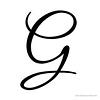Take a photo of a barcode or cover

sophronisba 's review for:
Weak Strongman: The Limits of Power in Putin's Russia
by Timothy Frye
challenging
informative
reflective
slow-paced
This book is academic but accessible -- the writing won't wow you (you can tell the author was working from an outline because almost every chapter begins with three points that he wants to make, followed by paragraphs beginning "First," "Second," and "Third,") but it's also not filled with jargon. The most useful takeaway here is that although it is tempting to think of Russia as either historically addicted to autocracy or in thrall to the strong personality of Vladimir Putin, the reality on the ground is (surprise!) more complicated than that. Putin is more constrained than you might imagine, and the Russian present is affected by but not determined by its past.
I am not sure that the author's "weak strongman" hypothesis holds up that well in light of Russia's recent invasion of Ukraine. It certainly does not seem that Putin is being particularly constrained by either the people of Russia as a whole or the oligarchs. On the other hand, until the current crisis is over, we won't really know the truth of what is going on -- and very possibly not even then. I do think this book is a useful corrective to the one-dimensional and reductive opinions about Russia that pop up whenever it is in the news.
I am not sure that the author's "weak strongman" hypothesis holds up that well in light of Russia's recent invasion of Ukraine. It certainly does not seem that Putin is being particularly constrained by either the people of Russia as a whole or the oligarchs. On the other hand, until the current crisis is over, we won't really know the truth of what is going on -- and very possibly not even then. I do think this book is a useful corrective to the one-dimensional and reductive opinions about Russia that pop up whenever it is in the news.